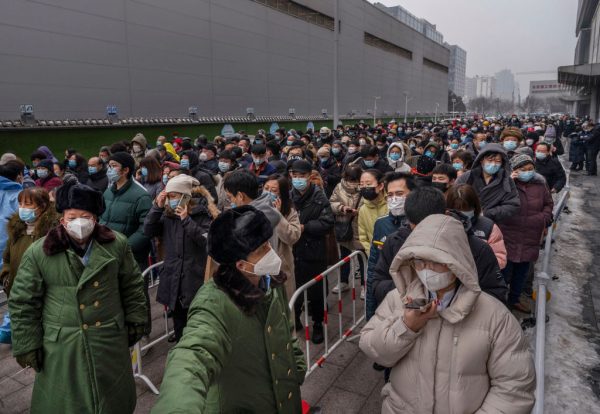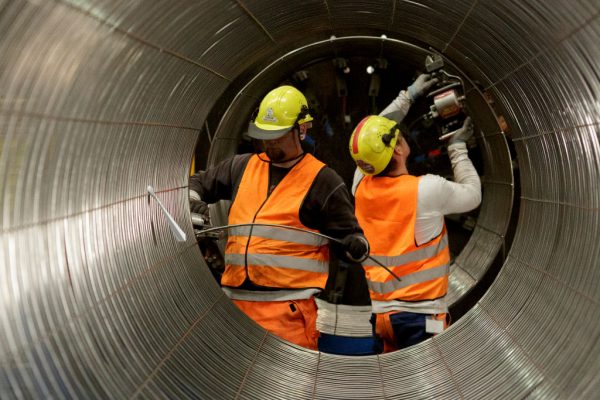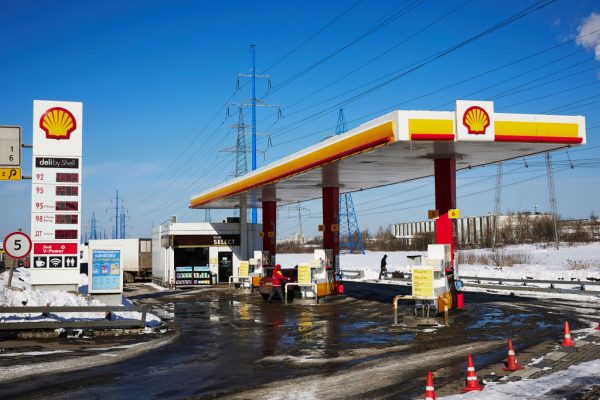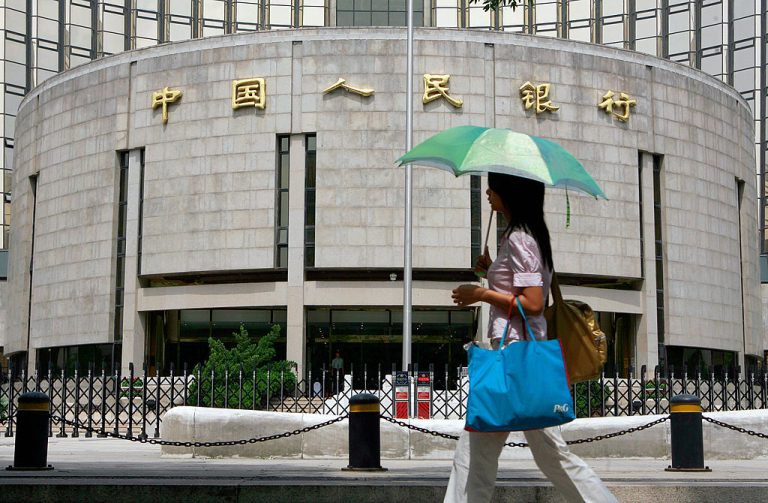Financial news analysis
China’s ambitious economic growth target for the year is already being questioned by analysts just days after being announced as the country faces a spike in oil prices, continuous new COVID-19 outbreaks and lockdowns, and a growing financial crisis in its real estate and home development sectors.
Economists at Goldman Sachs predict that the world’s second-largest economy will grow only by 4.5 percent this year — a full percentage point below the gross domestic product target of about 5.5 percent it set last week.
Beijing will need to accelerate policy easing to keep growth from sliding further, the analysts indicated, estimating the hike in oil prices brought about by Russia’s invasion of Ukraine could cut China’s GDP growth rate by half a percentage point alone.
The sudden rise in prices for oil, gas and other commodities will push up still-high producer price inflation, adding more pressure on manufacturers to squeeze profits and reduce funds reserved for investment and quality improvement.
Success
You are now signed up for our newsletter
Success
Check your email to complete sign up
Complicating matters further, new clusters of COVID-19 cases in China are climbing to levels unseen since the initial outbreak occurred in Wuhan two years ago, a further threat to the stagnating economy.
READ MORE:
- China’s ‘Zero-COVID’ Measures Continue as Parts of Shenzhen Placed Under Lockdown
- In 2022, Expect China’s Economy to Worsen Further
- China Shows Signs of Fiscal and Food Shortages Amid Slowing Economic Growth
In its drive to completely eradicate the pandemic from China, the Chinese Communist Party (CCP) placed the northwestern city of Xi’an, home to roughly 13 million, into a strict lockdown lasting over three weeks in December 2021.
Residents in Xi’an and other locked down communities took to social media to voice complaints about brutal or extreme treatment by local officials or hospital staff after being barricaded inside their homes for weeks on end and facing dwindling supplies of food and essentials. Some residents even reported loved ones dying after being denied medical attention due to the country’s strict COVID measures.

Although the pandemic has claimed millions of lives worldwide and caused catastrophic economic losses for some countries, Chinese authorities claim slightly over 101,000 infections and less than 5,000 deaths nationwide — hailing its “zero-COVID” policies as instrumental.
Despite this claim, there has been considerable doubt cast over the veracity of these figures as well as the effectiveness of Beijing’s heavy-handed lockdown policies. These policies have included disinfection theatrics, draconian lockdowns, mass testing and travel restrictions to sustain the CCP’s illusion of curbing the pandemic’s spread, oftentimes resulting in tragedy or violence.
Russian energy a potential lifeline for both economies
Now, China is considering buying or increasing stakes in Russian energy and commodities companies, such as gas giant Gazprom PJSC and aluminum producer United Co. Rusal International PJSC, according to a report by Bloomberg.
The producer price index rose 8.8 percent from a year earlier, official data showed on March 8, reflecting elevated cost-pressures on factories even before the most recent surge in overhead costs was factored in. China’s energy sector will be largely dependent on its ability to continue buying Russian energy and low consumer-price growth — which remained unchanged at 0.9 percent — and hope the prices hold in order to shield its consumers and companies from geopolitical tensions.
“As February data does not factor in the recent surging commodities and energy prices, we see more upside pressures to PPI inflation in coming months,” said Liu Peiqian, chief China economist at NatWest Group Plc.
Weak consumer spending due to new COVID-19 outbreaks and policies to restrict them has kept consumer inflation low, and the latest figure suggests the “domestic demand recovery is still soft and unstable,” she added.
The benchmark CSI 300 Index tumbled as much as 4.6 percent in this morning session’s trading — the steepest drop since July 2020.

According to various sources, Beijing is now in talks with its state-owned firms, including China National Petroleum Corp., China Petrochemical Corp., Aluminum Corp. of China and China Minmetals Corp., on any opportunities for potential investments in Russian companies or assets.
China has also seen a recent surge in stock buying as amateur retail investors rally to buy “Sino-Russian trade concept stocks” as they bet on Beijing boosting trade with Russia in an effort to soften the blow of unprecedented sanctions placed against Moscow. Stocks with even the slightest link to Russian trade are being snatched up at unseen rates, according to financial analysts.
Any deal would be to “bolster China’s imports as it intensifies its focus on energy and food security — not as a show of support for Russia’s invasion in Ukraine” — Bloomberg reported, quoting an unknown source familiar with negotiation talks between Russian and Chinese energy firms.
The discussions are at an early stage and won’t necessarily lead to a deal, the source added.
Beijing feels the heat over Russia-Ukraine war
Russia’s ongoing invasion of Ukraine has also increased the pressure on Beijing to secure imports as the cost of energy, metals and food skyrocket to unprecedented levels — with the Russian economy reeling under the pressure of massive Western sanctions.
Concerned about the impact of surging prices, China’s top government officials issued orders to prioritize commodities supply security and secure consumer spending by ensuring that factories are able to remain operational.
In the public eye however, China has vowed to “continue normal trade relations” with Russia despite most European and American firms deciding to cut their losses and exit the tanking Russian economy. Gas giants BP Plc, Shell Plc and Exxon Mobil Corp. took the energy industry by surprise when they walked away from Russian assets worth billions of dollars days after the invasion began.

On March 5, Visa, Mastercard and American Express also announced that any transactions initiated with their cards issued in Russia will no longer work at ATMs or merchants inside the country starting March 10. Cards issued outside of Russia will also no longer work inside the country or for online purchases, the firms said.
Meanwhile, China Foreign Minister Wang Yi said earlier this week that China-Russia ties remain “rock solid,” even as Beijing expressed concern over civilian casualties and called for “peace talks” between Moscow and Kiev in order to bring an end to the war.














